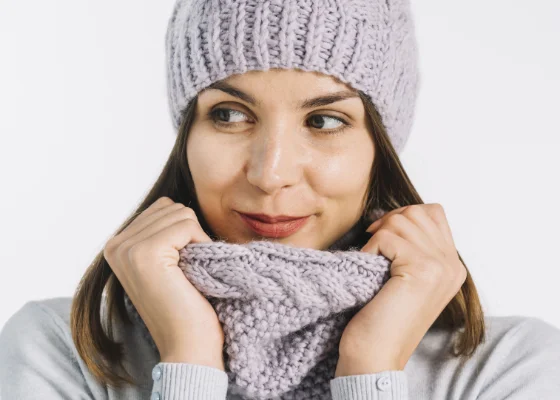
Should I Wear Sunscreen in Winter?

Yes, you need to wear sunscreen in winter. The sun’s ultraviolet radiation is both a major cause of skin cancer and the best source of vitamin D in Australia.
In Australia we need to balance the risk of skin cancer from too much sun exposure with maintaining adequate vitamin D level. During summer the majority of people can maintain adequate vitamin D levels from a few minutes of sun exposure on the face, arms and hands on either side of the peak UV periods (10 am to 3 pm).
In winter in the southern parts of a stray where UV radiation levels are less intense people may need 2 to 3 hours of sunlight spread over a week to maintain adequate vitamin D level.
In northern parts in Australia it may not be necessary to deliberately seek UV radiation exposure to maintain adequate vitamin D levels.
When do I need sun protection?
Most people need sun protection when the UV index is 3 above. If a horizontal line is drawn through Dubbo on a map any cities and north of this horizontal line will have a UV index of 3 or above from August onwards.
Some vitamin D can also be derived from diet such as fish fortified milk and eggs.
Are SPF ratings on sunscreens accurate?
Choice has released all of its test results publicly and called on the TGA to launch a compliance review following its report that 4 of 20 popular sunscreen did not meet the SPF 50 or 50+ claims. The brands included Bondi Sands, cancer counsel and banana boat. The worse perform according to choice was Ultra Violette’s Lean Screen SPF50+ Mineral Mattifying Zinc sunscreen which returned a rating of SPF 4.
See how your sunscreen compare to others: Choice Sunscreen Comparison
Are the ingredients in sunscreen safe?
Last week the TGA release it safe to review of 7 active ingredients commonly used in sunscreen. It found 5 were low risk and appropriate for use and sunscreen at the current concentration. However there were 2 ingredients, homosalate and oxybenzone should have tighter restrictions. This is based on uncertainty about the potential effects on the endocrine system which creates an release hormone.
What about benzophenone?
Benzophenone is a chemical producer and sunscreens that contain octocrylene degrades and may cause cancer at higher concentration. This is based on studies in which mice and rats were fed benzophenone well above the concentration and sunscreen.
Octocrylene to grow slowly over time to benzophenone. Heat makes it to great fast especially temperatures above 40 degrees.
TGA recommends restricting benzophenone to 0.0383% in sunscreen to assure it remains safe during the product shelf life. In addition sunscreens should be stored below 30 °C.
Contact Dr Jennifer Yip at Skindoc in Liverpool to create a winter skincare plan tailored just for you, and don’t forget to wear sunscreen in winter.
